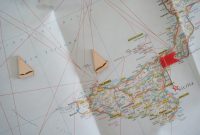
France, with its rich history, stunning landscapes, and exquisite cuisine, continues to be a top destination for travelers from around the world. Whether you’re planning a romantic getaway in Paris, exploring the sun-kissed coasts of the French Riviera, or savoring the wines of Bordeaux, understanding the current visa requirements and entry rules is essential for a smooth journey in 2025. This comprehensive guide will provide you with all you need to know about obtaining a visa for France, essential entry rules, and helpful tips to ensure your holiday is as seamless as possible.
Understanding France’s Visa Requirements
France is part of the Schengen Area, which comprises 27 European countries that have abolished border controls with each other. This means that travelers can move freely across these countries with a single visa. However, depending on your nationality, the type of visa you need to enter France may vary.
Types of Visas
- Schengen Visa (Short-Stay Visa): This visa allows you to stay in France and other Schengen countries for up to 90 days within a 180-day period. It’s ideal for tourists, business travelers, and family visits.
- Long-Stay Visa: If you’re planning to stay in France for more than 90 days, you’ll need a long-stay visa. This is applicable for those looking to study, work, or permanently relocate to France.
- Transit Visa: Required for individuals who need to pass through France en route to another country.
Who Needs a Visa?
Certain nationalities are exempt from obtaining a visa for short stays in France. Travelers from the United States, Canada, Australia, and most European countries can visit without a visa for up to 90 days. However, it’s crucial to confirm the latest requirements via the official French diplomatic website or with the French consulate in your country.
How to Apply for a French Visa
Gathering Required Documents
Before beginning your visa application, ensure you have all the necessary documents. These typically include:
- A valid passport with at least two blank pages and validity extending at least three months beyond your planned departure from the Schengen Area.
- Completed visa application form.
- Recent passport-sized photographs.
- Proof of travel insurance covering at least €30,000 for medical emergencies.
- Flight itinerary or reservation.
- Proof of accommodation in France.
- Proof of financial means to support your stay, such as bank statements or proof of employment.
Submitting Your Application
Visa applications can be submitted at the French consulate or embassy in your home country. Some countries also offer the option to apply through visa processing centers or online platforms. It’s recommended to apply at least three months before your planned travel date to avoid any delays.
Entry Rules and Customs Regulations
Once you have your visa, understanding the entry rules will help ensure a hassle-free arrival in France.
Entry Ports and Border Controls
France’s major international airports include Charles de Gaulle in Paris, Orly Airport, and Nice Côte d’Azur Airport. These airports have efficient immigration controls, but during peak seasons, expect longer queues. It’s always best to arrive early and have your documents ready for inspection.
Customs Regulations
France has specific customs regulations, particularly concerning the import of goods. Travelers should be aware of the following:
- Goods for Personal Use: You can bring goods for personal use without paying duty, as long as they are within set limits (e.g., 200 cigarettes, 1 liter of spirits).
- Prohibited Items: Certain items such as weapons, protected animal species, and counterfeit goods are strictly prohibited.
- Currency Regulations: If carrying more than €10,000 or equivalent in other currencies, it must be declared upon entry or exit.
Tips for a Seamless Journey
To ensure your trip to France is as seamless as possible, consider these helpful tips:
Travel Insurance
While travel insurance is a requirement for a visa, ensuring it covers a wide range of scenarios can provide peace of mind. Look for policies that include trip cancellations, lost luggage, and other unforeseen events.
Language Considerations
Although many people in France speak English, especially in tourist areas, learning basic French phrases can greatly enhance your experience and interactions with locals.
Transportation Tips
France boasts an extensive and efficient public transportation system. Consider using trains or buses to travel between cities. The TGV (high-speed train) is a popular option for quick travel across the country.
Respect Local Customs
Understanding and respecting French customs and etiquette can enhance your visit. Politeness is important; always greet with “Bonjour” and say “Merci” when appropriate.
FAQ
Q: Do I need a visa to visit France in 2025 if I’m an American citizen?
A: No, American citizens don’t need a visa for short stays of up to 90 days in France. However, for longer stays, a visa will be required.
Q: Can I extend my stay beyond 90 days without a visa?
A: No, staying beyond 90 days without a proper visa is not allowed. You’ll need to apply for a long-stay visa if you wish to remain in France for more than 90 days.
Q: How early should I apply for my visa?
A: It’s recommended to apply for your French visa at least three months before your intended travel date to account for processing times.
Conclusion
Traveling to France can be a delightful and enriching experience. By understanding the visa requirements and entry rules, and by preparing adequately, you can ensure your journey is smooth and enjoyable. Remember to check the most current information before your departure, as regulations can change. Whether you’re strolling along the Seine or enjoying a café in Provence, a well-planned trip will allow you to fully immerse yourself in the beauty and culture that France has to offer.


